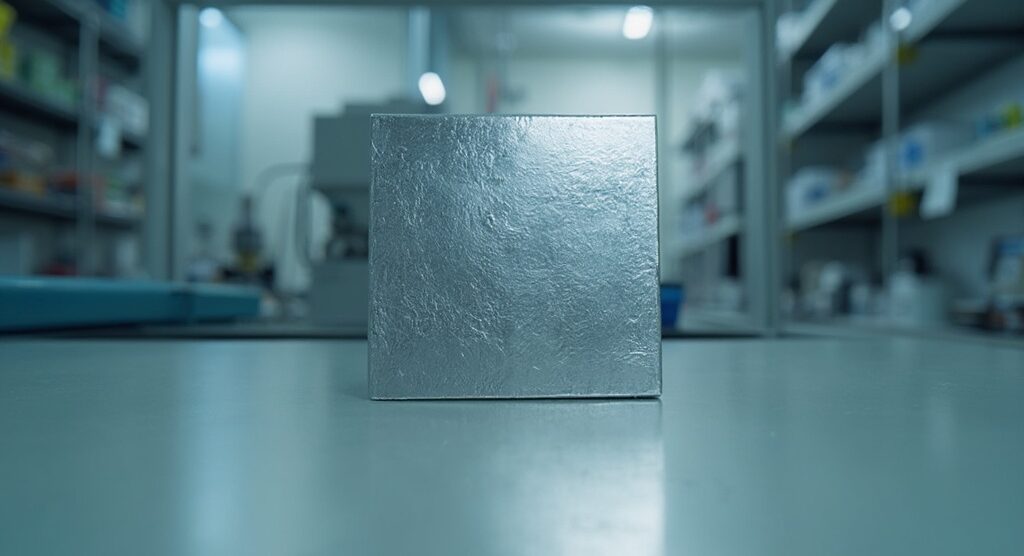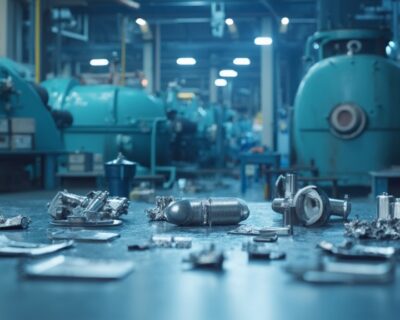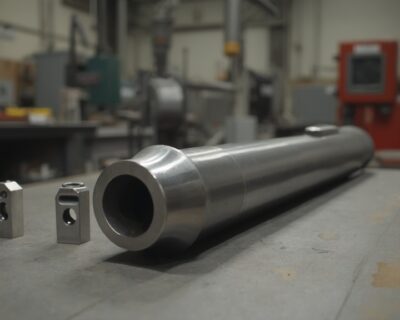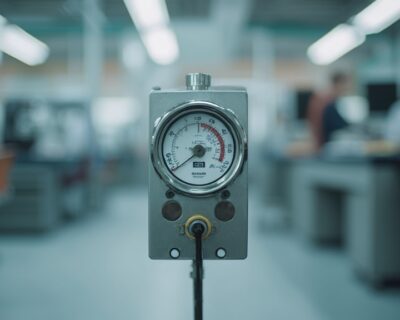Blogs

Understanding Monel 400 Material: Properties and Applications in Industry
Introduction
Monel 400, a nickel-copper alloy, is renowned for its exceptional properties that make it indispensable across various industries. Comprising 63% nickel and 28% copper, with minor elements like iron, manganese, carbon, and silicon, this alloy offers superior corrosion resistance and structural integrity in extreme environments. The alloy’s high tensile and yield strength, coupled with significant ductility, ensure its reliability in demanding applications such as marine engineering, chemical processing, and aerospace.
This article delves into the chemical composition, physical and mechanical properties, and unparalleled corrosion resistance of Monel 400. It also explores its extensive applications across multiple industries, highlighting the advantages that make it a preferred material for high-performance industrial components. Furthermore, it examines how Monel 400 compares with other materials, underscoring its critical role in advancing industrial capabilities.
Chemical Composition of Monel 400
Alloy 400 is an outstanding nickel-copper blend, consisting of 63% nickel and 28% copper. It also includes minor elements such as iron (2.5%), manganese (2%), carbon (0.3%), and silicon (0.5%). This specific blend grants this alloy its outstanding resistance to corrosion, even in the harshest environments. The alloy maintains its structural integrity and strength across a broad temperature range, making it a versatile choice for various industrial applications. Dr. Kaiping Yu notes the innovative edge in alloy development: “MN-based passivation is a counter-intuitive discovery, which cannot be explained by current knowledge in corrosion science.” This highlights the continuous advancements in material science that contribute to the superior properties of alloys such as 400.

Physical and Mechanical Properties of Monel 400
Alloy 400 boasts a remarkable tensile strength of around 70,000 psi and a yield strength of approximately 30,000 psi. Its 45% elongation at break highlights its significant ductility, making it versatile for various industrial uses. This non-magnetic alloy retains its properties across a broad temperature spectrum, ensuring reliability in harsh environments. This makes alloy 400 an ideal choice for applications in marine engineering, chemical processing, and aerospace industries.

Corrosion Resistance of Monel 400
Alloy 400 is renowned for its exceptional ability to withstand corrosion, particularly in severe acidic and alkaline settings. This nickel-copper alloy excels in seawater, hydrofluoric acid, and sulfuric acid, making it highly sought after for marine applications and chemical processing industries. Its remarkable ability to resist pitting and stress corrosion cracking provides a significant advantage, ensuring longevity and reliability even under the most demanding conditions.
Applications of Monel 400 in Industry
Alloy 400 is a versatile material extensively utilized across various sectors, including marine engineering, oil and gas, chemical processing, and aerospace. Its exceptional properties make it ideal for manufacturing components such as valves, pumps, and heat exchangers. In marine applications, the durability and ability to withstand corrosion of alloy 400 are especially appreciated, as shown by its utilization in submersible pumps and other underwater equipment. This reliability in harsh environments underscores its critical role in industries demanding high performance and resilience.

Advantages of Using Monel 400
Monel 400 offers a variety of benefits, establishing it as a favored choice in numerous challenging applications. Its outstanding ability to withstand corrosion ensures longevity even in harsh environments, while its high strength supports durability under mechanical stress. The material’s ease of welding and fabrication further enhances its versatility, allowing for intricate designs and robust structures. ‘Alloy 400’s thermal resistance ensures that it maintains structural integrity under temperature extremes, contributing to its reliability.’.
In high-end automation and assembly systems, the characteristics of alloy 400 are invaluable. For instance, Guide Engineering, renowned for its innovative approach in automation equipment, utilizes a specific alloy to enhance the durability and performance of its products. ‘The capacity of this substance to endure both thermal and mechanical stress has been crucial in their success, enabling them to satisfy the rigorous demands of domestic and international markets.’.
The recycling sector also gains from the attributes of alloy 400. Millennium Recycling, a leader in the sector, utilizes this resource in their advanced single-stream process, ensuring the equipment’s longevity and efficiency. This strategic choice supports their commitment to sustainability and operational excellence.
As demand for lightweight, long-lasting substances increases, the exceptional attributes of alloy 400 render it an essential element in industries like aerospace, automotive, and construction. Its ability to endure harsh conditions without compromising performance aligns perfectly with the industry’s move toward more sustainable and efficient practices. ‘This trend is emphasized at gatherings such as CW Tech Days, where specialists talk about the newest developments in substances and processing technologies, further underscoring the importance of high-performance alloys like a specific nickel-copper alloy.’.

Common Industries for Monel 400 Use
Alloy 400 is a preferred material in various sectors, spanning marine and petrochemical to aerospace and energy production. Its robustness in harsh environments sets it apart, making it indispensable for high-performance applications. For instance, in the aerospace sector, alloy 400’s remarkable durability against corrosion and ability to endure extreme temperatures ensure the reliability and safety of critical components. Similarly, in the marine industry, its resistance to seawater corrosion makes it ideal for shipbuilding and offshore applications. ‘The petrochemical sector benefits from the durability of alloy 400 in handling aggressive chemicals, safeguarding the integrity of pipelines and processing equipment.’. Additionally, the power generation industry utilizes alloy 400’s strength and stability under high heat and pressure conditions, ensuring efficient and uninterrupted operations. Overall, the distinctive characteristics of alloy 400 meet the demanding requirements across these sectors, demonstrating its pivotal role in advancing industrial capabilities.

Comparison with Other Materials
Alloy 400 is distinguished among metals for its remarkable ability to withstand corrosive settings, especially those with chlorides. Unlike stainless steel, which is often selected for cost-effectiveness, the superior properties of this alloy make it essential in critical applications where corrosion resistance is vital. This is particularly pertinent in fields such as offshore wind energy, where severe environmental circumstances require substances that can endure considerable wear and tear. The International Energy Agency projects a fifteen-fold increase in global offshore wind capacity by 2040, highlighting the importance of durable materials like Monel 400 in such high-stakes contexts.

Conclusion
Monel 400 is a vital material across various industries, recognized for its unique nickel-copper composition. This alloy excels in corrosion resistance and structural integrity, making it ideal for demanding applications in marine engineering, chemical processing, and aerospace.
With impressive tensile and yield strength, along with significant ductility, Monel 400 ensures reliable performance in extreme conditions. Its resistance to pitting and stress corrosion cracking is particularly valuable in harsh environments, such as seawater and aggressive chemicals, extending component lifespan and reducing maintenance costs.
The alloy’s versatility is evident in its applications, from valves and pumps to aerospace components. Its ease of welding and fabrication supports intricate designs tailored to specific industry needs. As the demand for lightweight and durable materials increases, Monel 400 aligns with trends toward sustainability and high performance.
In summary, Monel 400 is an indispensable material that effectively addresses modern industrial challenges. Its superior properties reinforce its critical role in enhancing operational excellence across various sectors.




